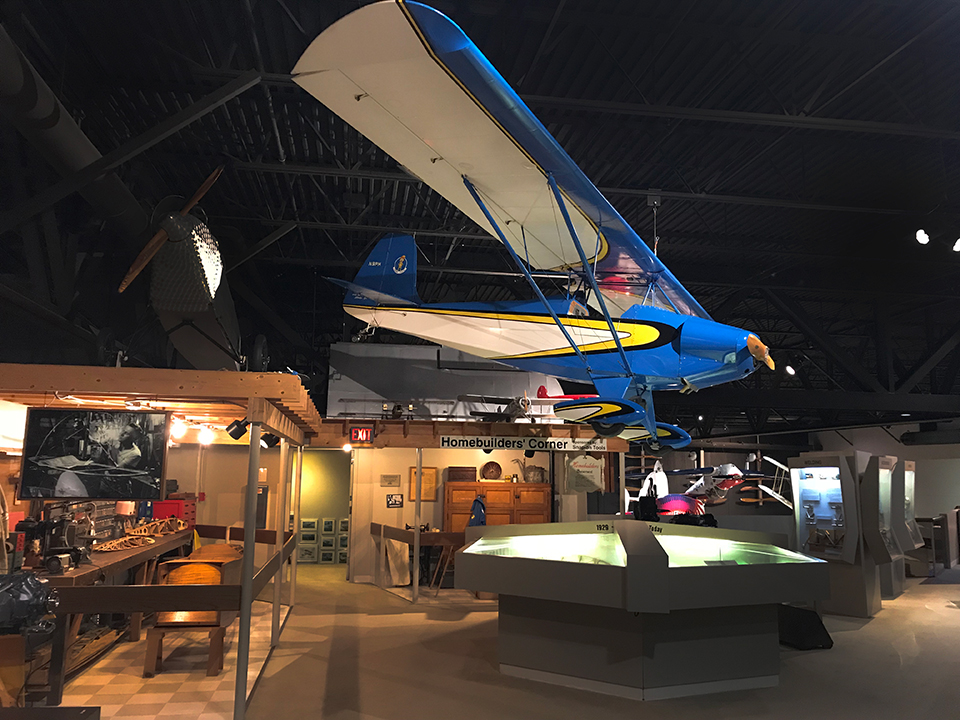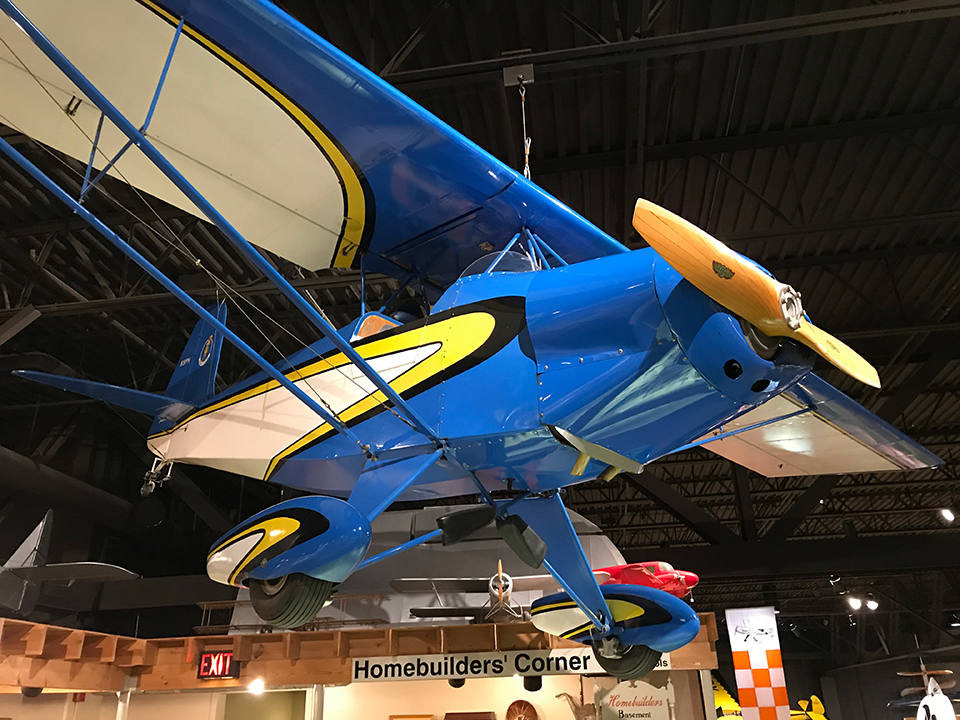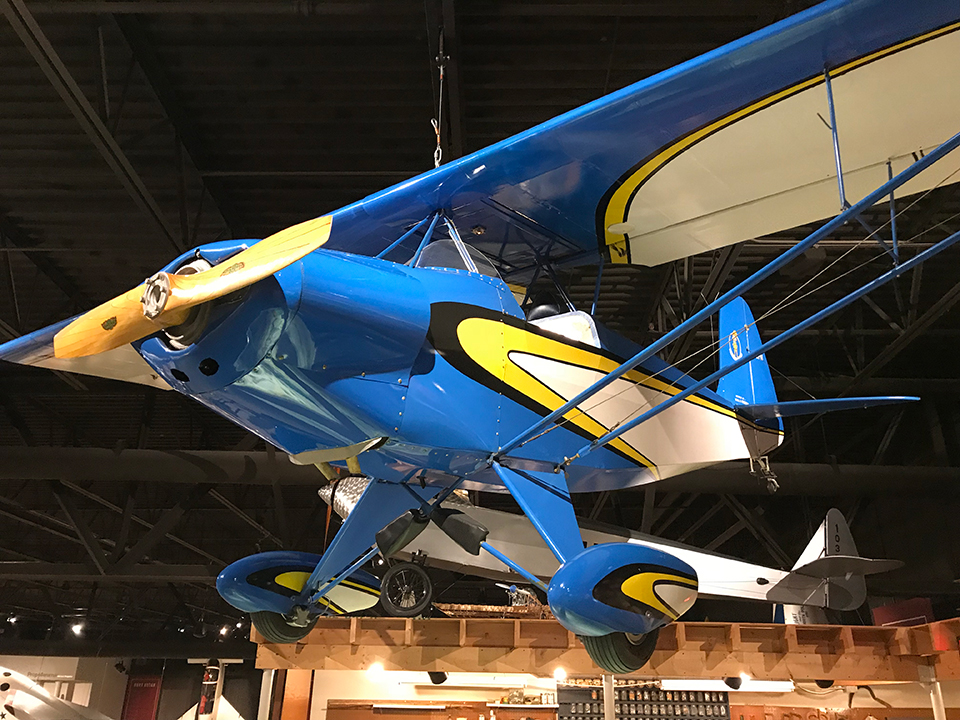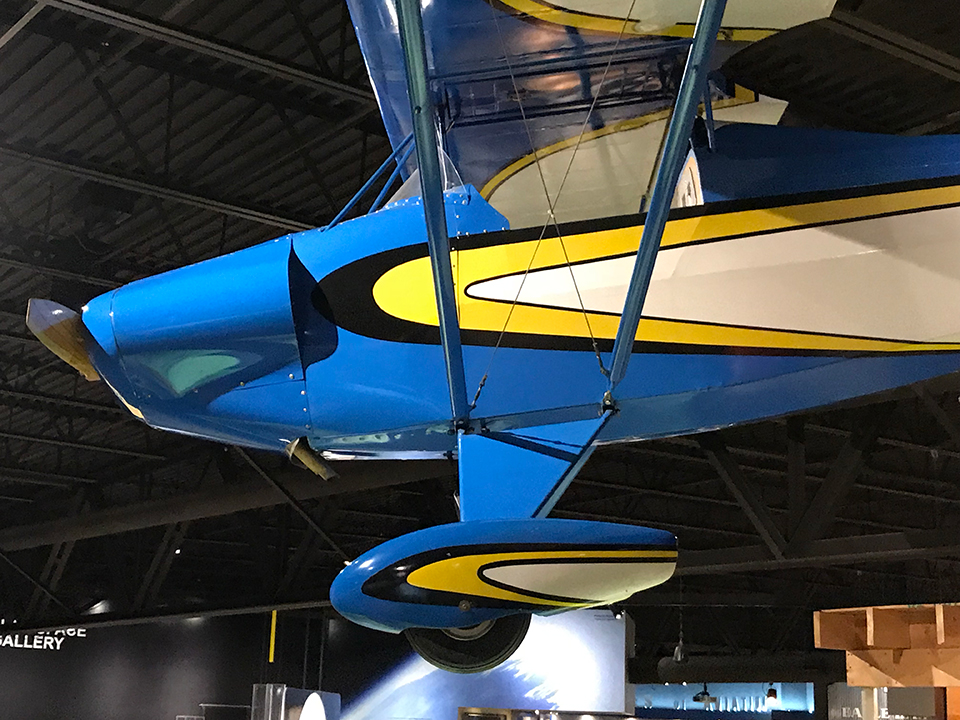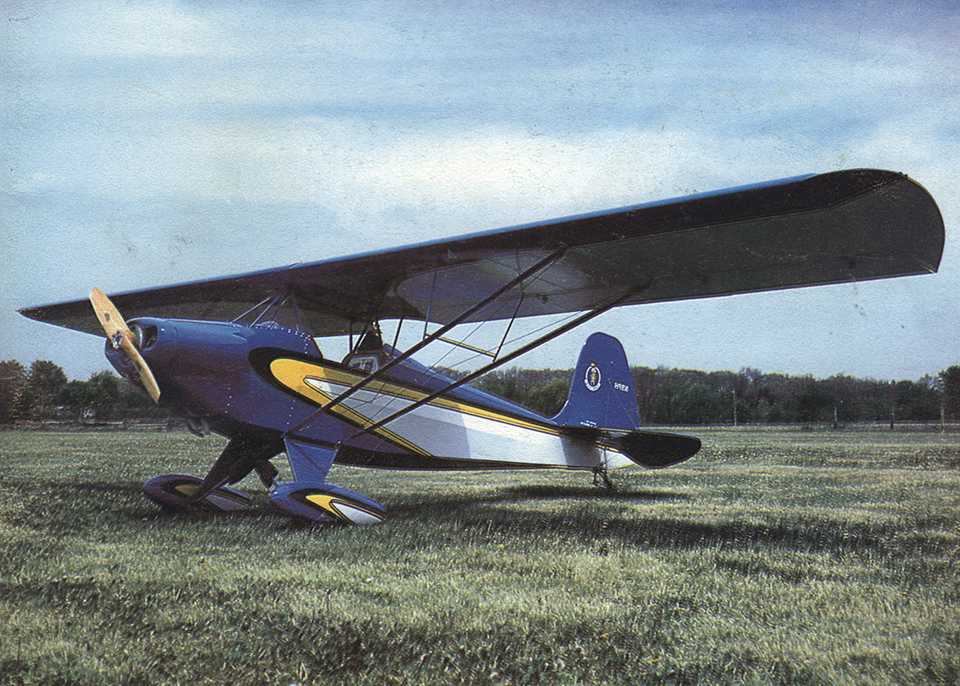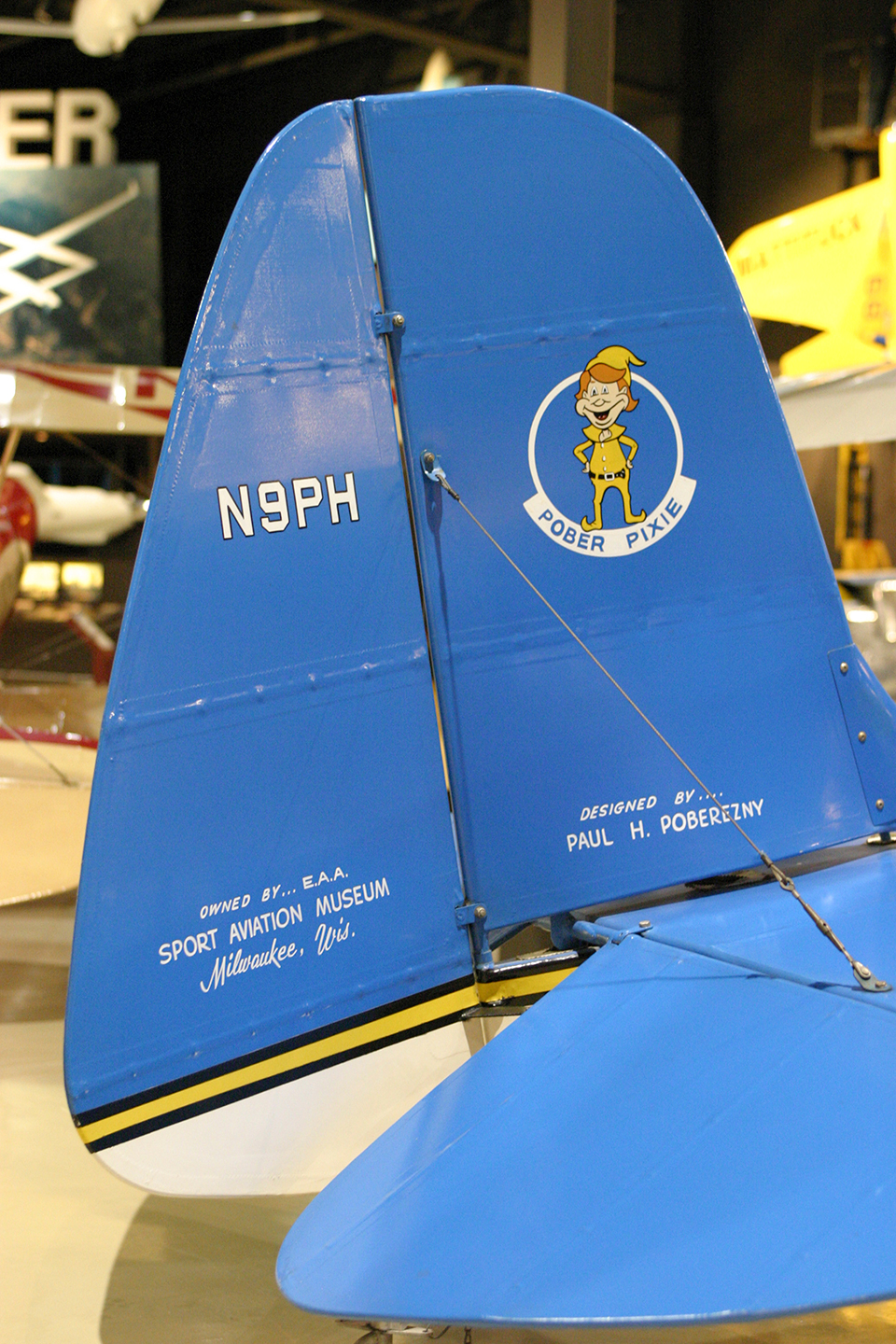1974 Poberezny P-9 'Pober Pixie' - N9PH
Location: Museum Mezzanine- Homebuilders’ Corner
In response to the energy crisis in the 1970s, Paul Poberezny designed the Pober Pixie. The Pixie was to be the first in a series of economy aircraft that would meet the new demand for fuel efficiency as part of the design project entitled “Project Econoplane.” Fuel consumption for the Pixie is approximately three to three and a half gallons per hour.
The aircraft was originally powered by a converted Volkswagen engine, which was later swapped with a Limbach Model SL 1700 EA. The Limbach engine develops a maximum of 60 hp at 3550 rpm and is equipped with a single Slick 4030 magneto, a Bosch starter, and a Ducati alternator. The carburetor is a Zenith 28 RXZ, which is mounted on the rear part of the engine.
The Pixie slightly resembles the Heath Parasol LN, with a similar control column, basic fuselage side layout, non-compression ribs, ailerons, and general shape of the tail group. The airplane also features a J-3 style gear with external shock cords.
The Pober Pixie was built in record time; the project started in January 1974 in EAA’s shop and flew for the first time in late July, just prior to EAA Oshkosh. However, the aircraft had a few kinks in it and was taken back to the EAA shop to be stripped down just after the convention. Over the winter of 1974-1975, the Pixie underwent a series of improvements including the Limbach engine, a pressure-type cowling with a fiberglass nosebowl and new aluminum sides, and a Rehm 53-30 propeller. The modifications were complete by February 1975 and had fixed most of the bugs.
The Pober Pixie was easy to fly and economical to run. It was roomy enough for larger pilots and has a cruise speed high enough for reasonable cross-country trips. In many ways, the Pixie typified sport aviation, proof that the open cockpit flying of the helmet and goggles era will always be around.
Length: 17 feet, 3 inches
Wingspan: 29 feet, 10 inches
Empty Weight: 543 pounds
Gross Weight: 900 pounds
Seats: 1
Maximum Speed: 130 mph
Cruise Speed: 83 mph
Range: 290 miles
Powerplant: Limbach Model SL 1700 EA
Horsepower: 60 mph
